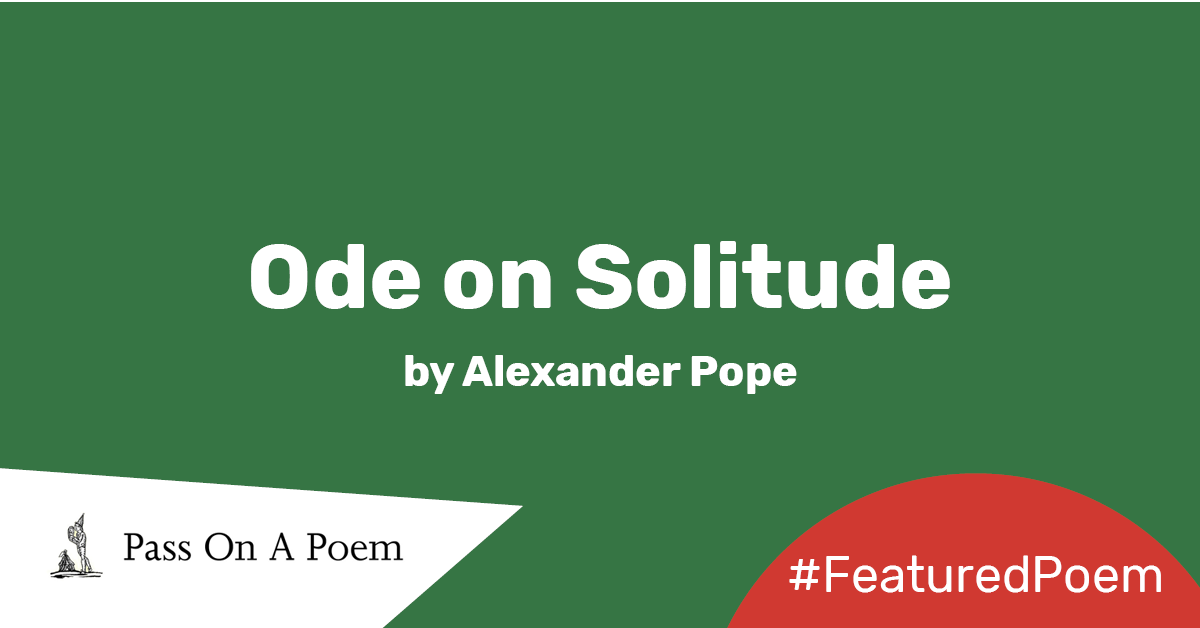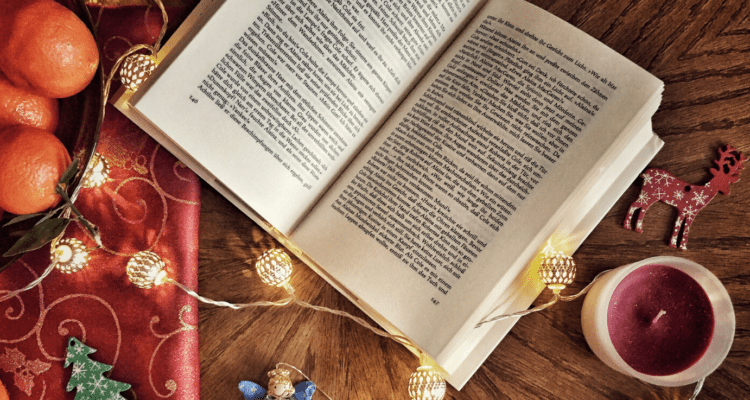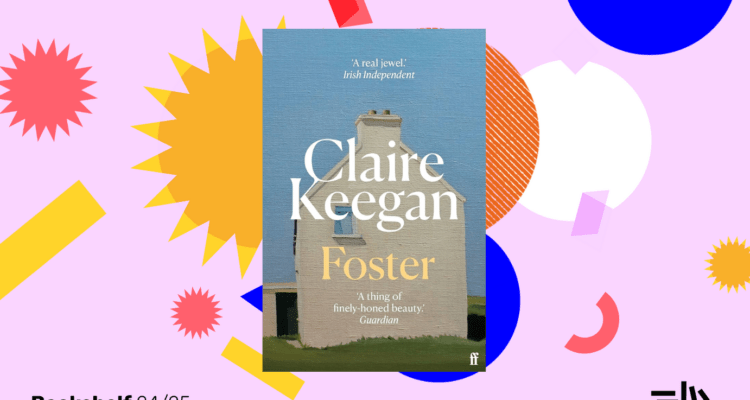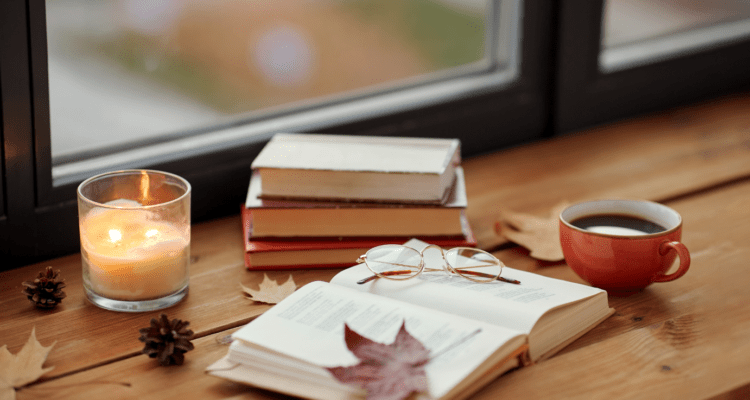Featured Poem: Ode on Solitude by Alexander Pope
This week's Featured Poem is Ode to Solitude by Alexander Pope, chosen by The Reader's Learning and Quality Leader Chris Lynn.

Here you’ll find a few comments and thoughts to explore in a Shared Reading group this week’s featured poem ‘Ode to Solitude’ by Alexander Pope. As the title suggests, this feels like a veritable celebration of solitude and, after a few readings this poem, almost reads as a recipe for a good life.
This person seems to be rediscovering a union with his ‘native’ air, somewhere away from the concerns of upholding a social life, finding space to breathe the fresh air. Do we feel we become ourselves away from the noise of the crowd?
I was drawn to the phrase ‘In his own grounds’ and wondered what that might mean for us. I don’t think many of us will have their own ‘grounds’ but may well recognise what an owned, protected space to find solace might do for us. Where might this be for us? Also, I think ‘on his own grounds’ might read more naturally, so the ‘in’ makes itself heard here – perhaps asking us to extend that feeling inward, to find an interior, mental space in which we are fully immersed.
Blest! who can unconcern'dly find
Hours, days, and years slide swift away,
In health of body, peace of mind,
I think people I most enjoy being around are the ‘Unconern’d’, who can wear concerns lightly and who can radiate a stable and accepting ‘peace of mind’. Although, do we want our time to ‘slide swift away?’, unnoticed, unchecked? How does time feel when we’re at our happiest?
Sound sleep by night; study and ease
Together mix'd; sweet recreation,
And innocence, which most does please,
With meditation.
Can we ever achieve this perfect balance of relaxation and stimulation, of ‘study and ease’ with other elements working in harmony too: ‘sleep’, ‘study’, ‘ease’ ‘recreation’ ‘innocence’ ‘mediation’ – which ring true in so much wellness advice we see today!
Thus let me live, unheard, unknown;
Thus unlamented let me dye;
Steal from the world, and not a stone
Tell where I lye.
What are we left with here? ‘Thus let me live’ - who is being asked here – who does this person need permission from? It this a personal meditation or is it something more than that? I was also struck by the desire to be ‘unheard’ and ‘unknown’ – do we understand this impulse to get away, hide, melt or ‘steal’ away somehow? Is solitude a key ingredient to our own lives and is the balance right here do we think?
Solitude, An Ode
How happy he, who free from care
The rage of courts, and noise of towns;
Contented breaths his native air,
In his own grounds.
Whose herds with milk, whose fields with bread,
Whose flocks supply him with attire,
Whose trees in summer yield him shade,
In winter fire.
Blest! who can unconcern'dly find
Hours, days, and years slide swift away,
In health of body, peace of mind,
Quiet by day,
Sound sleep by night; study and ease
Together mix'd; sweet recreation,
And innocence, which most does please,
With meditation.
Thus let me live, unheard, unknown;
Thus unlamented let me dye;
Steal from the world, and not a stone
Tell where I lye.
Alexander Pope
Share
Related Articles

December’s Stories and Poems
The Reader Bookshelf theme of ‘Wonder’ might make many of us think of the very special kind of wonder which…

December’s Choice From The Reader Bookshelf
The Reader Bookshelf is a carefully curated collection of literature for adults and children, exploring a different theme each year, this year’s…

November’s Stories and Poems
This month, we are turning our focus to a major part of The Reader’s in Criminal Justice settings. For 15…


